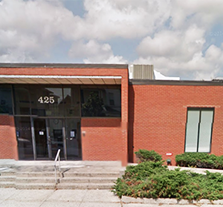Overview
Outpatient Psychiatric Services
This facility treats adults, 18 years old and up.
Adult patients who have achieved some stability but continue to need more intensive treatment than traditional outpatient therapy, or to prevent hospitalization, may be treated within our Adult Intensive Outpatient Program. Most of these patients are admitted for treatment of mood disorders, anxiety disorders, chronic suicidal ideation, co-occurring disorders (psychiatric and substance-abuse disorders), personality disorders, and family/interpersonal conflicts. Patients can be referred during the hospitalization or by outpatient psychiatric providers. Participants attend the program three to four times a week for four hours each day. There are three main tracks in this program:
- General Adult Track (for patients with general mood or anxiety disorders)
- Dual Diagnosis Track (for patients with both psychiatric and substance-abuse diagnoses)
- Dialectical Behavioral Track (primarily for patients with borderline personality disorder and other severe personality disorders)
Clinical Services
- Comprehensive and multidisciplinary biopsychosocial evaluation
- Crisis intervention and case management to help patients safely manage their psychiatric or co-occurring disorders on an ambulatory basis with increasing self- and community-support reliance
- Cognitive-behavioral groups that focus on continued development of coping and problem-solving skills and relapse prevention
- Group therapy that actively addresses interpersonal problems which may contribute to the patient's ongoing psychiatric problems or co-occurring disorders
- Psychoeducational groups that strengthen the patient's commitment to change problematic behaviors
- Specialized groups are provided targeting bipolar disorder, anxiety disorder, family issues, loss and trauma
- Medication consultation to community psychiatrists and other physicians prescribing pharmacologic treatments for patients and promotion of medication compliance; if there is no prescriber in place, this component of treatment is provided by psychiatrists at IOP
- Discharge planning and collaboration with patients' outpatient treaters, family and community agencies to facilitate an integrated approach and to establish comprehensive transition plans that promote patients' optimal functioning
Basic principles of the program
- Most of our clients have slipped into a kind of "psychological crevice" where it becomes hard to maintain a hold on positive connections with other persons, and fruitful activities and work. Our aim is to give our clients footholds and handholds enabling them to lift themselves out of that crevice.
- Each person can learn from others, no matter what his/her walk of life. There are struggles, challenges and life experiences that are common to us all. People struggling with similar issues grow and learn together. Clients learn from each other and from staff. And staff always learns from clients.
- To be treated with utmost dignity and respect is a necessary condition for our clients to achieve the courage to change.
- Selecting psychiatric medications is a collaboration between the physician and the client that carefully weighs benefits and possible side effects, fully reflecting prior treatment experiences and up-to-date scientific evidence. It is important that a medication strategy be given a full chance to work. That requires patience and perseverance. If a medication strategy, after thorough evaluation, does not work or produces significant side effects, it is time for a change.
- Medications can help to improve coping and functioning but are not the sole means of recovery. What is required also is developing a greater capacity to understanding one's self in relationship to others and the tasks of living. Better coping, managing stress and personal growth will help medications to work better. Similarly, medication can provide necessary traction for psychotherapeutic treatments
- People often slip into patterns that govern behaviors and distort how experience is understood. Substance abuse, psychosis, suicidal preoccupation, mania and depression all constitute very specific, highly rigid patterns of behavior, thought and experience. Once you understand the pattern, you can change it.
- A critical aspect of our work as staff is to partner with referral clinicians who work with our clients in an ongoing fashion through rapid feedback and ongoing two-way consultation. We seek to provide clinicians with an array of approaches designed to help their clients in crisis change course in a positive direction so that regular outpatient treatment can move forward in a more fruitful fashion.
- Every treatment setback and downturn provides an opportunity to learn from one's mistakes and to set a better course.


